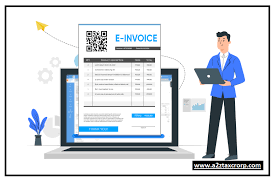
GST E-Invoice Rule Update: Companies with Turnover > ₹5 Crore Now Mandated to Generate E-Invoices: The Central Board of Indirect Taxes and Customs (CBIC) announced a substantial adjustment in India’s Goods and Services Tax (GST) laws on July 28, 2023. As per the new guidelines, companies with a turnover of more than ₹5 crore will be required to generate electronic invoices (e-invoices) for their business-to-business (B2B) transactions or exports.
Daily Current Affairs Quiz: August 2023
Previously, this requirement applied only to companies with an annual revenue of ₹10 crore or above. The CBIC’s move aims to boost tax collections and compliance under the GST regime. The inclusion of MSMEs in the e-invoicing regime is viewed as a beneficial move that can help both businesses and the government.
Changes for Companies with Turnover > ₹5 Crore:
Beginning August 1, 2023, enterprises having a total annual revenue of more than 5 crore must provide e-invoices for B2B transactions and exports. The previous threshold for e-invoicing was ₹10 crore, but it has now been reduced to ₹5 crore. This change is aimed at increasing compliance and tax collections in the GST system.
Benefits for MSME Sector:
The inclusion of MSMEs in the e-invoicing regime is viewed as a positive step that can enhance the sector’s growth. Experts believe that the expansion of e-invoicing to MSMEs will improve the flow of input tax credit and reduce credit-related issues for suppliers.
The phased implementation of e-invoicing has reduced disruptions, improved compliance, and increased revenue. The change is likely to benefit the broader business environment in the long run by lowering expenses, decreasing errors, ensuring faster invoice processing, and limiting commercial disputes.
Government’s Focus on Raising Revenue and Tackling Tax Evasion:
The reduction in the threshold limit for e-invoicing is expected to help the GST department in raising additional revenue and curbing tax evasion. The government is leveraging robust data analytics and artificial intelligence to identify and track risky taxpayers. Data exchange with partner law enforcement organisations allows for more targeted engagement in addressing tax evasion.





